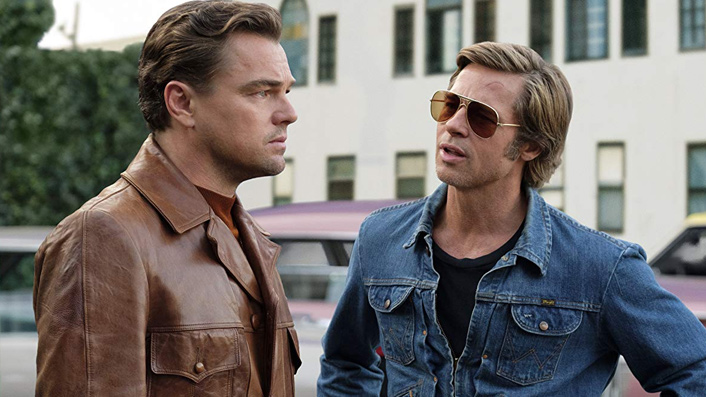Once Upon a Time in Hollywood serves thrills on top of deep ponderings
“I cannot wait to have it age like a fine wine”

Once Upon a Time in Hollywood is Quentin Tarantino’s latest all-star drama set in 1969 L.A. starring Leonardo DiCaprio alongside Brad Pitt, Margot Robbie as Sharon Tate and more. For some Tarantino fans, it will be his most beloved work to date writes Daniel Rutledge.
The ninth film from Quentin Tarantino is a love letter to 1969 Los Angeles that serves up cheap thrills on top of deep and meaningful ponderings. It’s quite a departure from the iconic filmmaker’s intense last three movies, ambling along to its own groove, which may be harder to get on board with. But when you do, it’s a particularly pleasurable groove that for some fans will make for Tarantino’s most beloved work to date.
Leonardo DiCaprio and Brad Pitt are both firing on all cylinders as Rick Dalton and Cliff Booth, an aging partnership of actor and stuntman, respectively, whose careers are coming to an end. The roles are instant career highlights for both actors, but neither outshines Once Upon a Time in Hollywood‘s other remarkable achievements. This is an extraordinarily rich film, full of stunning, packed images that will be paused and marvelled at upon home release as fans explore all the myriad ways it pays homage to show business and the summer of ’69. But it’s also rich with themes and metaphors that enjoyably bubble around in your head days after you’ve watched it. Is it Rick or Cliff that better represents Tarantino as he approaches retirement in real life? Do both of them represent the medium of film itself? What’s with the emphasis of filth on the bare feet?
For a lot of its runtime, this feels like a hang out movie. Its world is so well realised that it’s never boring to hang out in, but on first viewing some of it seems pointless. Hints at an inevitable darkness are dropped along the way, before the film shifts gears and brilliantly moves into a more sinister phase around the two hour mark. But as it all ends with a typically shocking, violent and subversive climax, it shifts back to its chilled out self, somehow taking all the chaos in its stride.
There’s an innocent sweetness to this film’s sentimentality and nostalgia that only fully reveals itself at the very end, making for a wonderfully endearing aftertaste. It might not be as filled with electrifyingly great dialogue as most of Tarantino’s films, but I cannot wait to have it age like a fine wine upon countless repeat viewings.






















